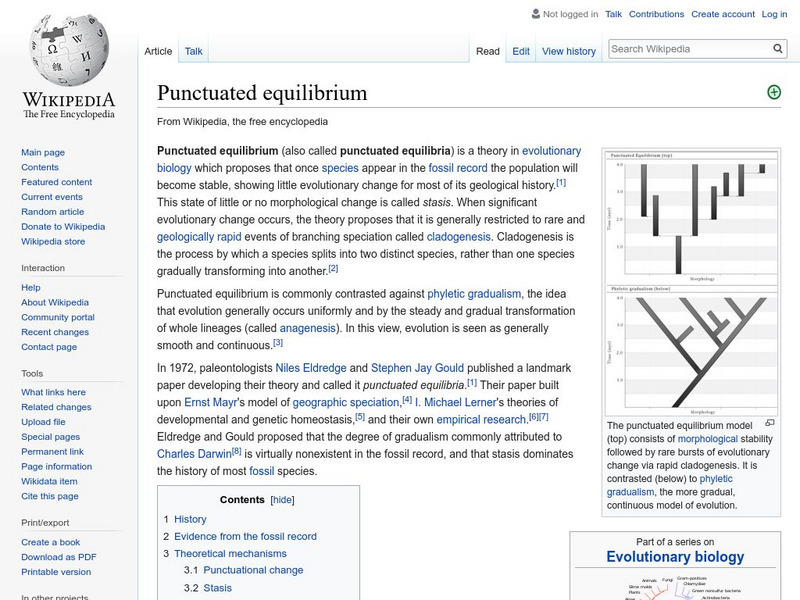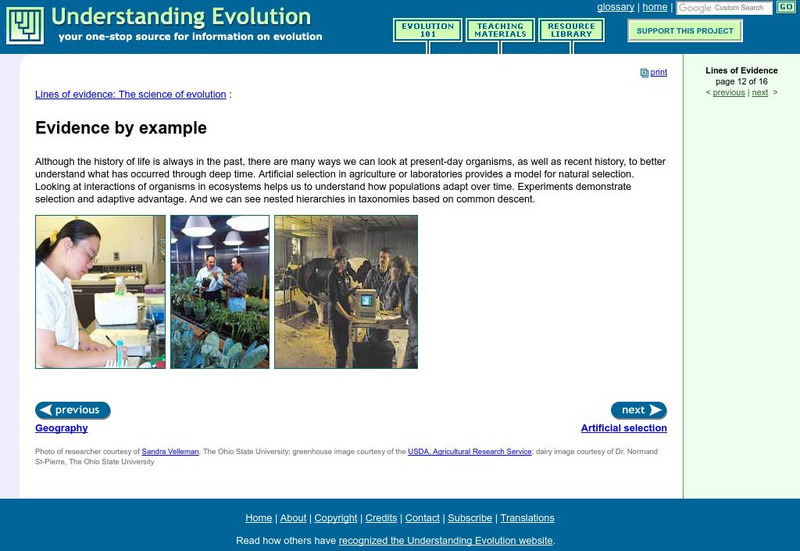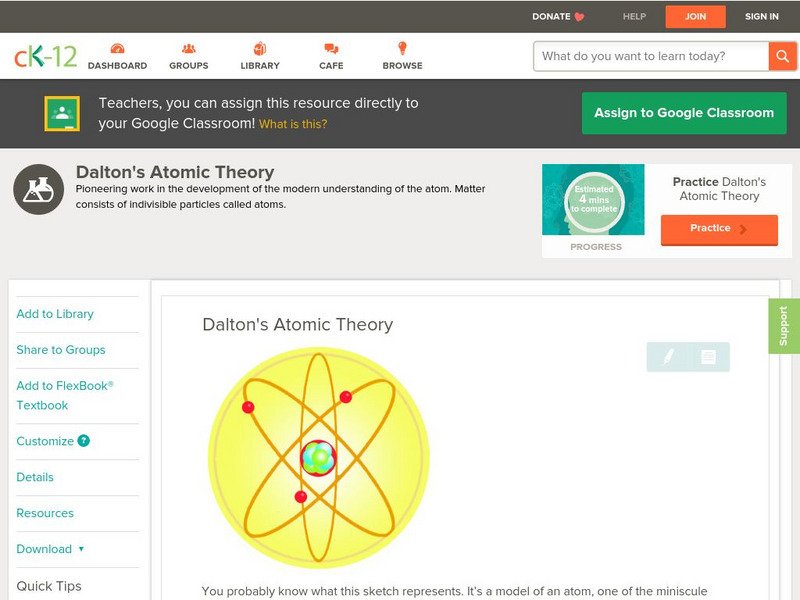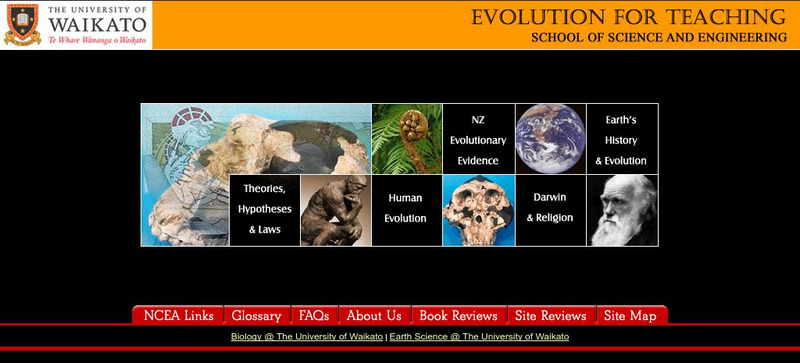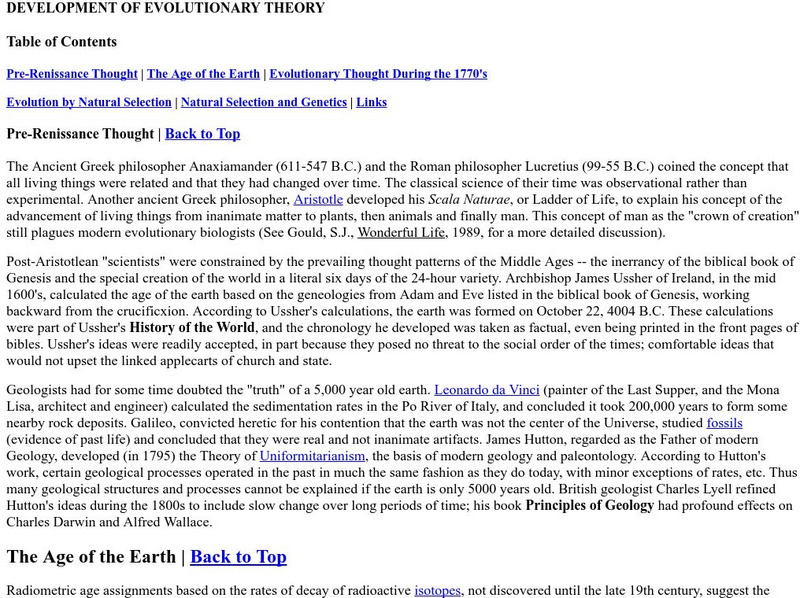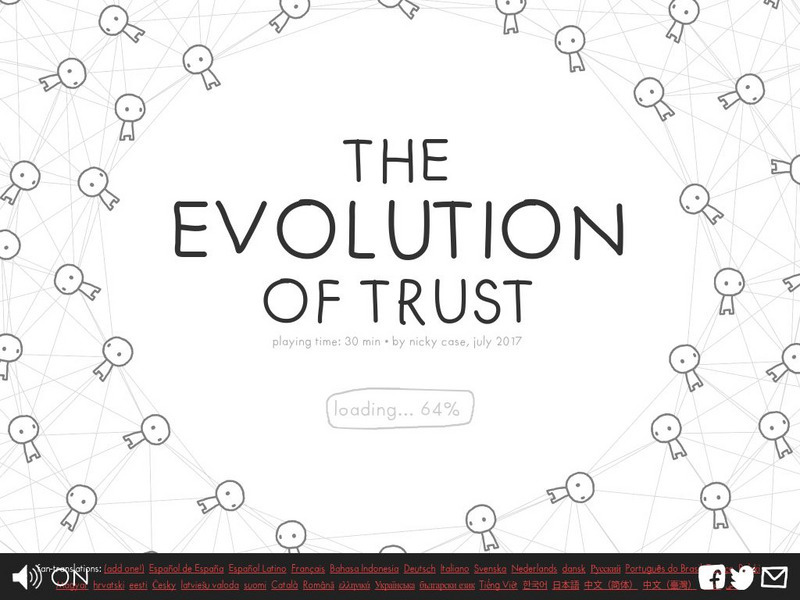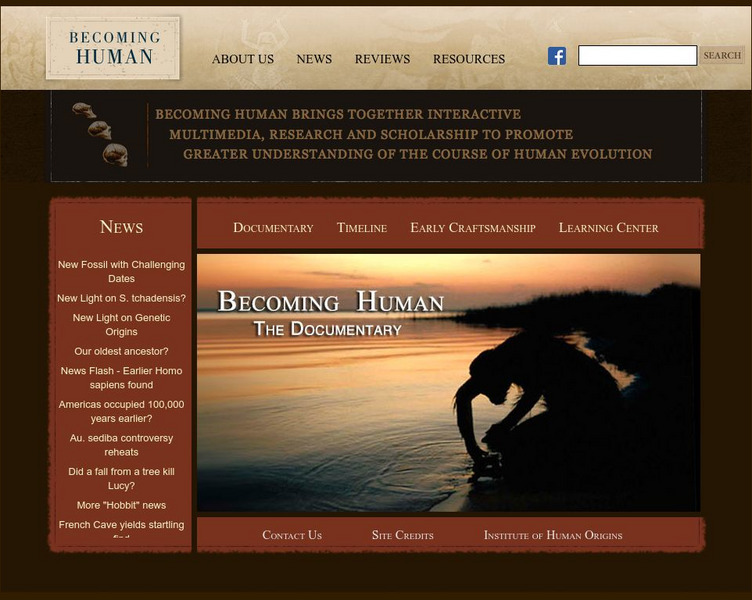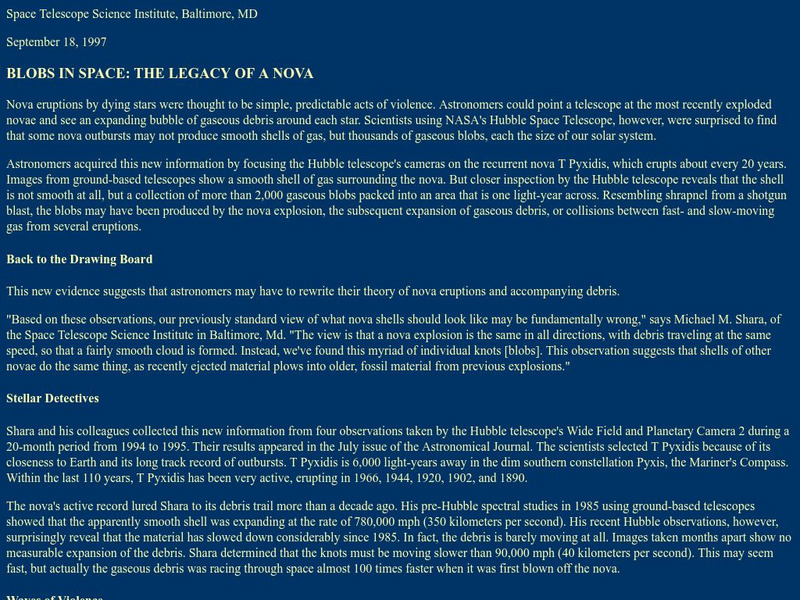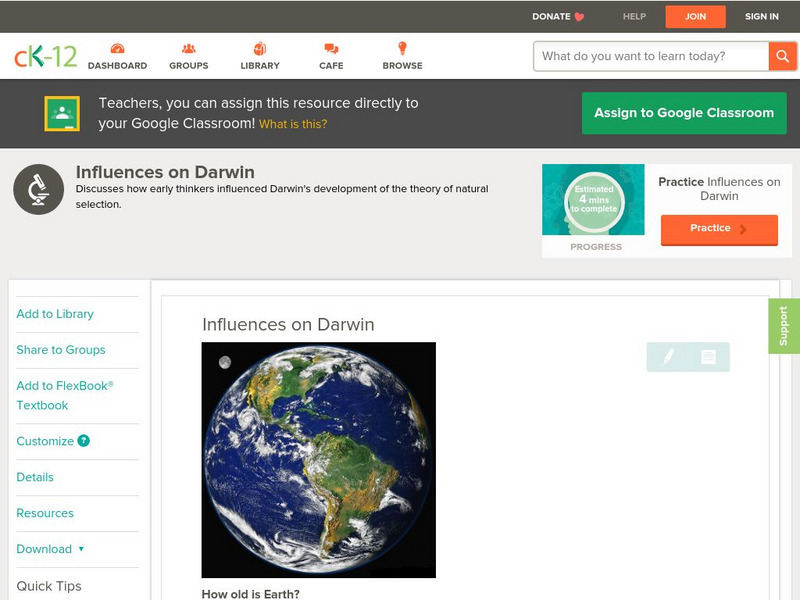Wikimedia
Wikipedia: Punctuated Equilibrium
This brief explanation of punctuated equilibrium includes paragraphs on the history of the theory and the controversy surrounding it.
BioMan Biology
Bio Man Biology: Angry Aliens: Evolution
Teach aliens about evolution as you play this game, and review your own understanding in the process. Topics covered include evolutionary mechanisms, evidence of evolution, natural selection, reproductive isolation, population genetics,...
University of California
University of California Museum of Paleontology: Evidence by Example
The Understanding Evolution website for teachers provides common examples of evolution, especially by artificial selection.
CK-12 Foundation
Ck 12: Physical Science: Dalton's Atomic Theory
[Free Registration/Login may be required to access all resource tools.] Reintroduction of the idea of the atom and the billiard ball model.
University of California
Understanding Evolution: Nature of Science
Understand the processes behind the nature of science.
Khan Academy
Khan Academy: Ap Us History: 1865 1898: Social Darwinism in the Gilded Age
Discusses Social Darwinism and the negative repercussions it had on society during the Gilded Age. Includes questions for students at end.
Natural History Museum
Natural History Museum: Human Origin Exhibit
This online exhibit from the Natural History Museum weaves together seven subtopics dealing with human origin and evolution. The topics range from Pildown man and ancient humans to modern humans and chimp research.
Vision Learning
Visionlearning: Atomic Theory and Structure: The Early Days
Explanation of the evolution of atomic theory and the experimentation associated with these concepts.
Texas A&M University
Peer Curricula: Story Time: Thomas H. Huxley
A biography of the remarkable life of Thomas Huxley, who began his life in abject poverty, but through self-education and dedication, became a star in world science.
Story Behind the Science
Story Behind the Science: Just How Big Is the Universe? [Pdf]
Explains the history of the scientific debate and research on the topic of the size of the universe. The writer discusses the relevance of debate in the evolution of scientific theories.
University of Oregon
University of Oregon: Greek Science: Early Cosmology
Discusses the evolution of ideas about the cosmos, from the Magic Cosmology of the Neolithic age to the stage of Mythical Cosmology, to the Geometric Cosmology of the ancient Greeks. The third stage advocated a rational approach to...
University of California
University of California Museum of Paleontology: Fossil Evidence
Understanding Evolution provides evidence for evolution using fossils. There are also links to lesson plans.
Other
Wikia: Human Science: Law, Principle, Theory, Rule
Law, principle, theory, and rule are the four stages necessary in the evolution of social change. Dive into the depths of how each plays their role in the change. Find examples listed to aid in comprehension of each stage, definitions,...
Other
Evolution for Teaching: School of Science and Engineering
A reference page containing information related to evolution. Topics discussed on the page is the theories, human evolution, evolutionary evidence, Darwin, and Earth's history.
Estrella Mountain Community College
Online Biology Book: Development of Evolutionary Theory
Using diagrams and descriptive illustrations, this college-level biology reference book discusses the development of evolutionary theory.
Other
Nicky Case: The Evolution of Trust
Surveys show that over the past 40 years fewer and fewer people trust each other. Why do friends become enemies and enemies become friends? Game theory can help explain our epidemic of distrust and how we can fix it. Play the game of...
Nobel Media AB
The Nobel Prize: The Nobel Prize in Physiology or Medicine 1933
At this site from The Nobel Foundation you can read about Thomas Hunt Morgan, the scientist who won the Nobel Prize in Medicine "for his discoveries concerning the role played by the chromosome in heredity." This website is organized...
Famous Scientists
Famous Scientists: Alfred Russel Wallace
Learn about the life and work of Alfred Wallace, who is best known for independently conceiving the theory of evolution through natural selection; his paper on the subject was jointly published with some of Charles Darwin's writings.
Other
Blackwell Publishing: Evolution: Adaptive Explanation
These pages are part of a site called Evolution that accompany a textbook by the same name. Mark Ridley is the author. There is a large amount of information available about adaptations and their role in evolution.
Simon Fraser University
Chem1 Virtual Textbook: The Basics on Atomic Theory
As part of the Virtual Textbook, this site examines all things related to Atomic Theory including information on atoms, molecules, formulas, equations, nomenclature, and more.
Other
Institute of Human Origins: Becoming Human
Multimedia-rich guide for anyone making their way through a study of human origin. Find information and analysis about the fossil record, comparative anatomy, theories, and the cultural adaptations of humans and their ancestors. With an...
Other
Bio Web Evolution: Homepage
This site from BioWeb Evolution was originally created as a ThinkQuest entry, and it has some good basic information about evolution. This page is on fossils and geologic time.
Other
Astronet: Blobs in Space: The Legacy of a Nova
The expansion and explosion of a star is described at it goes through its nova phase. Current theories are discussed.
CK-12 Foundation
Ck 12: Life Science: Influences on Darwin
[Free Registration/Login may be required to access all resource tools.] When Darwin returned to England at the end of his voyage, he did not rush to announce his discoveries. He did not want to present any ideas unless he had strong...
